27 August 2025
Shaily Gandhi (Senior Postdoctoral Fellow at IT:U), Neema Sumari (Sokoine University of Agriculture, Tanzania), and Felix Emeka Anyiam (University of Port Harcourt, Nigeria)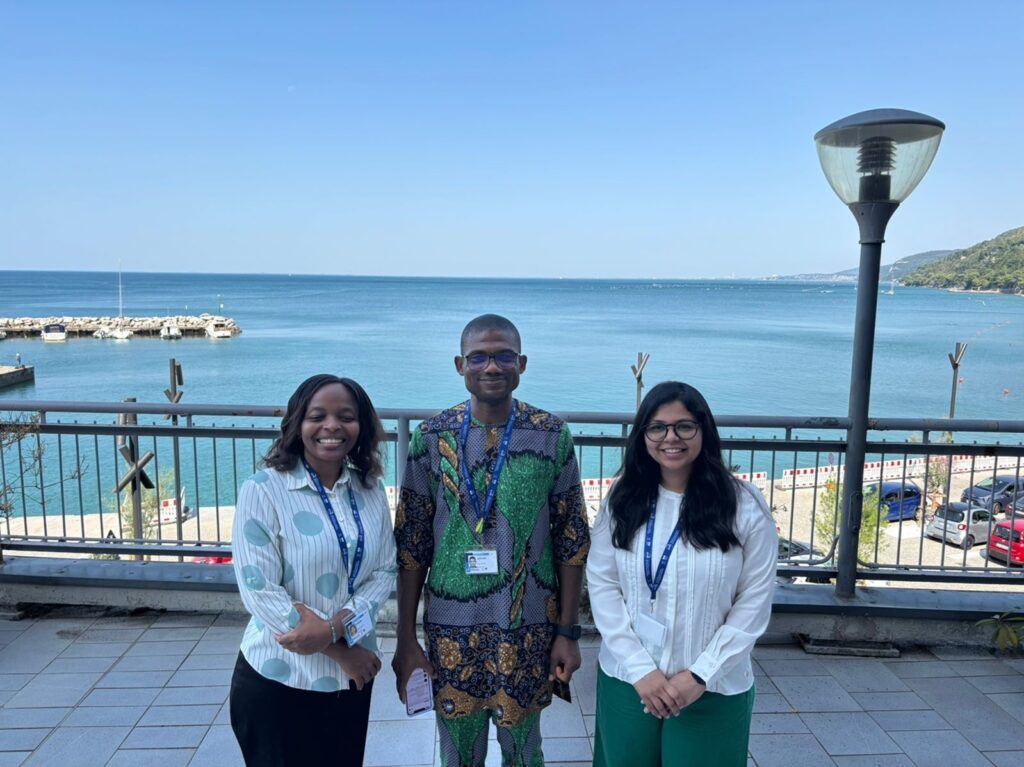
This August 2025, the ICTP in Trieste, Italy, hosted a special edition of the CODATA-RDA Advanced Workshop on Research Data Science, celebrating a decade of collaboration. What made this milestone even more meaningful was that three of us, Shaily Gandhi, Neema Simon Sumari, and Felix Emeka Anyiam, were once students at these schools in 2016 and 2017. Shaily and Neema first met as students at the CODATA-CNIC Training Workship in Beijing in 2016, and the following year, all three of us crossed paths in the 2017 Summer School. Over time, through continuous collaborative efforts and initiatives, we transitioned from being students to returning as tutors for this 10th anniversary edition.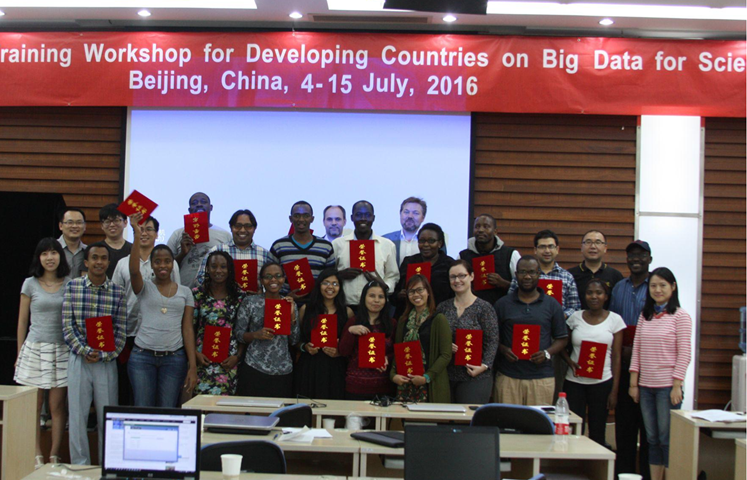
The journey of the Urban Data Science Summer School is rooted in the collaborations that began at the CODATA-RDA Research Data Science Summer School in Trieste. Shaily Gandhi and Neema Sumari first graduated from the CODATA-CNIC Training Workshop in 2016, and the following year, they met Felix Emeka Anyiam at the 2017 CODATA-RDA Summer school in Trieste. It was here that the foundations for future collaboration were laid, leading to the launch of the first Urban Data Science Summer School in 2018. Building on that success, the second edition was hosted by the Summer–Winter School at CEPT University, Ahmedabad, India, from May 13 to May 23, 2019. These schools reflect not only the growth of an academic program but also the strength of international collaboration that has continued to evolve since those early connections in Trieste.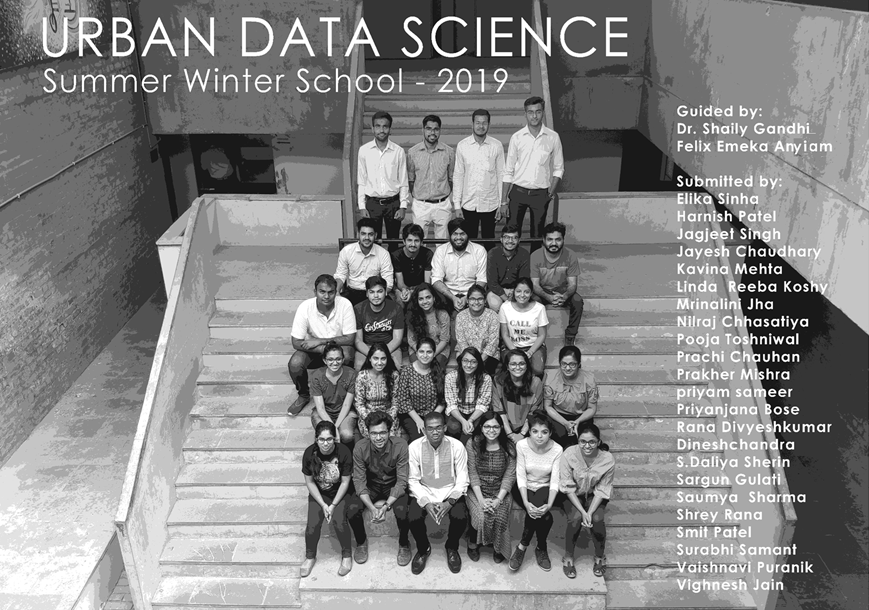
source : https://shailygandhi.github.io/UrbanDataScience2019/
This year Urban Data Science school created a unique program that combined computational infrastructure with urban analytics and geospatial applications. This year, we embedded the computational infrastructure track into the urban data science curriculum, a decision that brought a rich interdisciplinary dimension. This integration allowed participants not only to gain technical skills, scaling their analyses from laptops to HPC clusters and cloud platforms, but also to apply these methods to real-world urban challenges. From geospatial analysis and remote sensing to urban mobility and health applications, the workshop underscored the importance of interdisciplinary approaches in the urban domain.
The Urban Data Science curriculum was curated and developed by Shaily Gandhi (ITU Linz, Austria), Neema S. Sumari (Sokoine University of Agriculture, Tanzania), and Felix Emeka Anyiam (University of Port Harcourt, Nigeria). Compute Infrastructure was taught by Robert Quick (Indiana University, USA) and Raphael Cóbe (UNESP, Brazil).
Our goals for this advanced school were fourfold. First, we aimed to provide participants with technical depth in scaling data analysis across different environments, from laptops to HPC clusters and cloud platforms. Second, we focused on developing practical expertise in urban data science, covering geospatial analysis, mobility, sustainability, and predictive modeling for smart cities. Third, we emphasized the importance of responsible data practices, embedding FAIR principles, ethics, and privacy throughout the program. Finally, we sought to foster collaboration from the very beginning, encouraging participants to develop projects starting on Day 1 and present their outcomes on the final day.
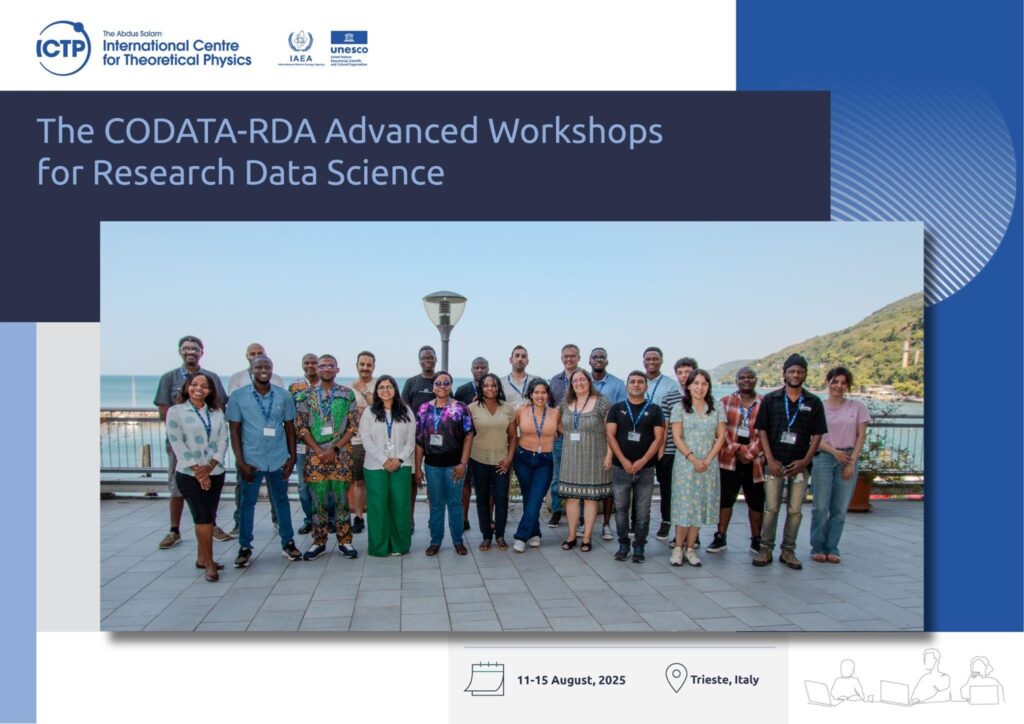
The workshop unfolded over five intensive days, each building on the last.
Day 1 introduced the foundations of urban data science, highlighting challenges such as data silos, integration difficulties, and the tracking of pollution. Participants engaged in hands-on exercises with raster and vector data, experimented with NDVI calculations, and explored the role of crowd-sourced platforms and citizen science, while also beginning to form project groups. On
Day 2, the focus shifted to remote sensing and geospatial analytics, where participants used QGIS and Google Earth Engine to process data from Landsat, Sentinel, and ESA WorldCover, applying techniques for land cover classification, change detection, and public health mapping, including heat island analysis.
Day 3 centered on urban mobility and health applications, combining mobility data from GPS, transport systems, and surveys with ethical reflections on location-based analytics. Practical sessions using OpenStreetMap enabled participants to model mobility patterns, while discussions linked congestion and air pollution directly to public health outcomes.
The technical backbone came into focus on Day 4, led by Robert Quick and Raphael Cóbe, who guided participants through scaling workflows from laptops to HPC clusters and cloud platforms, including deploying Jupyter notebooks and managing reproducible workflows.
Finally, Day 5 culminated in project presentations, where participants showcased outputs ranging from land cover mapping with remote sensing to predictive health modeling, effectively bringing together the week’s technical training and applied lessons.
Early project integration kept participants engaged from the very first day, giving them direction and momentum throughout the week. The synergy between the two tracks fostered unique opportunities for cross-learning, while hands-on labs in QGIS, Google Earth Engine, and HPC systems ensured that theory was consistently tied to practice. By weaving in discussions on health and ethics, the sessions grounded technical work in real-world impact, making it directly relevant to policy and societal challenges. Perhaps most importantly, the collaborative spirit of the workshop fostered a strong sense of community, ensuring that the connections built in Trieste will continue well beyond the event.
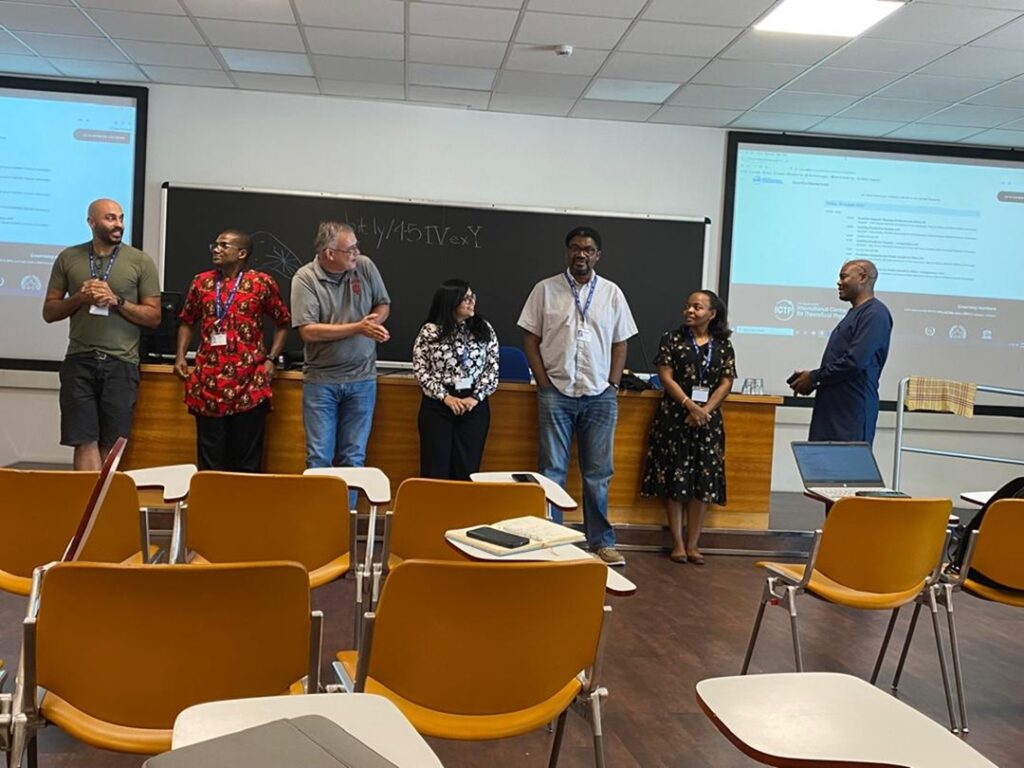
“The 2025 CODATA-RDA Advanced Workshop on Urban Data Science in Trieste was a deeply meaningful experience for me. Returning as a tutor after first joining as a student in 2016 felt both humbling and inspiring, marking a full-circle moment. What stood out most was the strong sense of community, growth, and shared commitment to building global capacity in data science, and I am truly grateful to CODATA, ICTP, and my colleagues for making this beautiful journey.” – Neema Simon Sumari
Participants will carry these skills into their own research, teaching, and applied projects, addressing urban and infrastructure challenges in their regions. Collaborations initiated in Trieste will continue to thrive through CODATA-RDA networks. Future editions of the workshop will build on this model—further integrating infrastructure and application, while deepening the focus on climate resilience, health, and ethics in data use. The 2025 edition was a living example of capacity building in action as a decade celebration.
